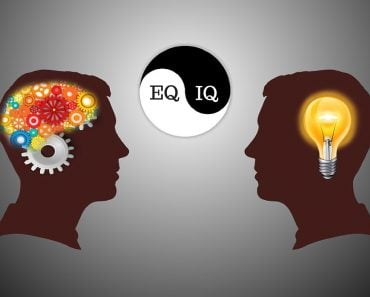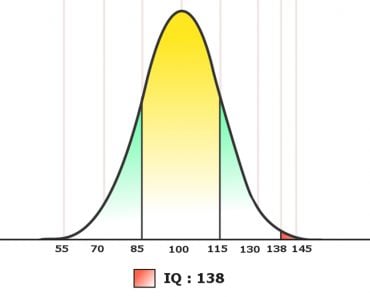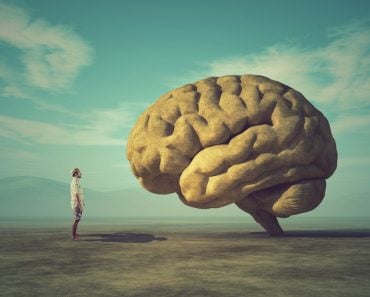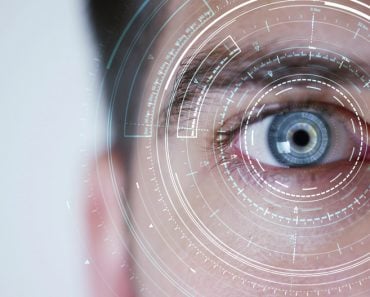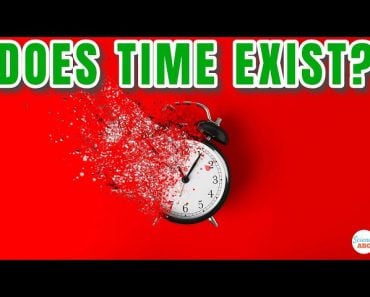Table of Contents (click to expand)
- Stephen Hawking (IQ Score: 160)
- Albert Einstein (IQ Score: 160-190)
- Christopher Michael Langan (IQ Score: 190-210)
- Kim Ung-Yong (IQ Score: 210)
- K. visalini (IQ Score: 225)
- Christopher Hirata (IQ Score: 225)
- Marilyn Vos Savant (IQ Score: 228)
- Terence Tao (IQ Score: 225-230)
- William James Sidis (IQ Score: 250-300… Probably)
- Ainan Celeste Cawley (IQ Score: 250)
- Marnen Laibow-Koser (IQ Score: 268)
- Adragon De Mello (IQ Score: 400)
- What Is Intelligence?
- How Is Intelligence Tested?
- What Is Considered A High IQ?
- The Flynn Effect
- Does ‘High IQ’ Mean Academic Or Professional Success?
The intelligence quotient is a specific score a person achieves after taking one of the many standardized tests to measure the intelligence level of individuals. Originally, the intelligence quotient was calculated as a ratio of mental age to chronological age IQ = MA / CA x 100, where MA is mental age, and CA is chronological age.
In this article, we will look at who all have the highest IQ scores worldwide.
Note that this list is NOT exhaustive and may not include the name of every person with a high IQ score.
Recommended Video for you:
Stephen Hawking (IQ Score: 160)
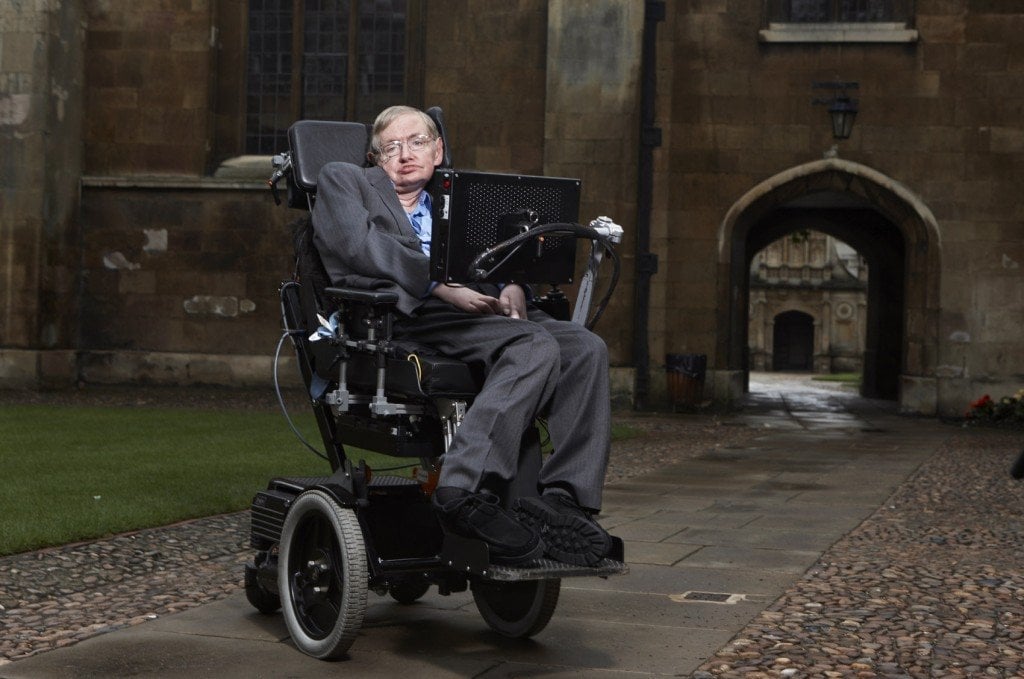
Stephen Hawking was born on January 8, 1942, in Oxford, England. From a young age, he had a deep interest in the workings of the physical universe and decided to study physics at Oxford University. He later pursued his research in cosmology at Cambridge University.
Hawking is best known as a physicist, specifically a theoretical physicist and cosmologist. In these areas, he spent his life studying the laws governing the universe, particularly focusing on the nature of black holes and the origins of the universe.
One of his significant contributions to science was his work with Roger Penrose regarding the theory of singularities within the framework of general relativity. He also proposed the now widely accepted theory that black holes emit radiation, known as ‘Hawking radiation’.
In addition to these scientific achievements, Hawking is also an author and has published numerous popular science books. His first book, “A Brief History of Time,” was published in 1988 and quickly became a bestseller and has sold more than 10 million copies worldwide. Despite being diagnosed with amyotrophic lateral sclerosis (ALS) at age 21, which gradually paralyzed him and left him almost entirely speechless, Hawking continued to work and put forth groundbreaking ideas in his field. He used a voice synthesizer to communicate and continued to give lectures and write scientific papers.
One of his more subtle but significant achievements was his work in raising awareness about disability rights and advocating for individuals living with ALS and other forms of neurodegenerative diseases. Despite the severe physical limitations imposed by his disease, Hawking lived an active and influential life until his death on March 14, 2018. His contributions to the fields of theoretical physics and cosmology continue to influence and guide scientists today.
Albert Einstein (IQ Score: 160-190)
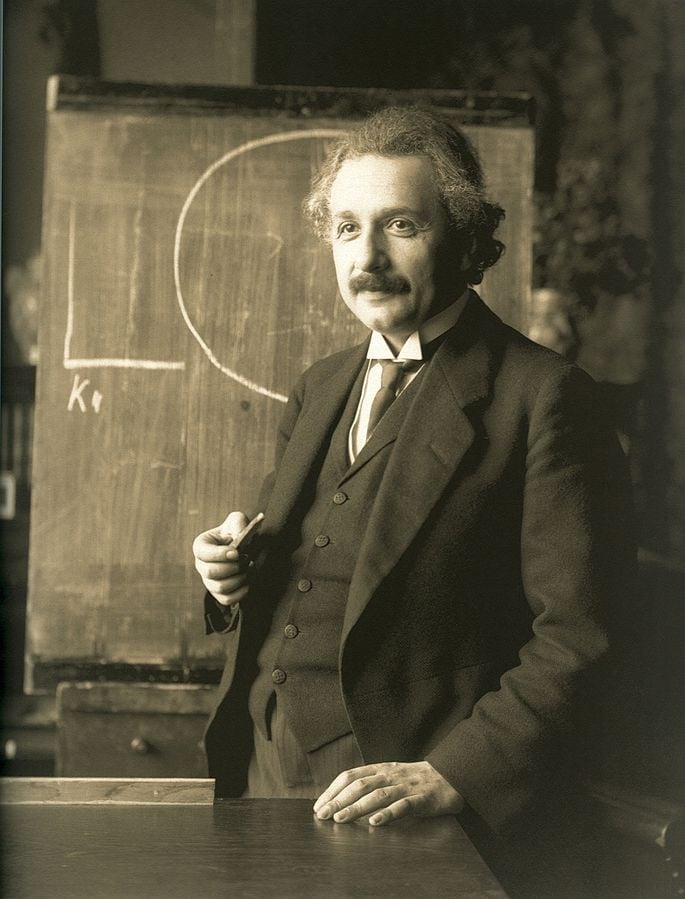
Albert Einstein was born in Ulm, in the Kingdom of Württemberg in the German Empire on March 14, 1879. His father was Hermann Einstein, a salesman and engineer, and his mother was Pauline Koch. In 1880, the family moved to Munich, where Einstein’s father founded Elektrotechnische Fabrik J. Einstein & Cie, a company that manufactured electrical equipment based on direct current. Einstein’s brilliance became evident at an early age, even though he did not speak until the age of three. His interest in science was sparked at the age of five when his father showed him a pocket compass. He began playing the violin at age six and would continue to play throughout his life.
Einstein initially worked as a patent examiner at the Swiss Patent Office from 1902 until 1909, while he theorized in physics. However, he is best known as a theoretical physicist who developed the theory of relativity, one of the two main pillars of modern physics (with quantum mechanics). He later held professorships at the University of Bern, University of Zurich, Charles University in Prague, University of Berlin, and also directed the Kaiser Wilhelm Institute for physics (1917–1933). After leaving Germany due to the rise of the Hitler regime, he took a position at the Institute for Advanced Study (1933–1945) in New Jersey, U.S.
Einstein’s most famous formula, E=mc² was derived from the theory of special relativity, proving that mass and energy are interchangeable. His theory of general relativity (1915) revolutionized the understanding of physics, introducing concepts like space-time curvature in the presence of mass and energy. Its predictions for phenomena like the deflection of light by gravity were experimentally confirmed, securing Einstein’s fame.
In 1921, Einstein was awarded the Nobel Prize in Physics for his explanation of the photoelectric effect, showing that light also has a particle nature. This contributed greatly to the development of quantum mechanics.
Einstein played a significant role in the development of quantum theory, though he had reservations about its philosophical implications. His debates with Niels Bohr, particularly over quantum entanglement, are famous.
In addition to his scientific achievements, Einstein was known for his advocacy for education, civil rights, pacifism, zionism, and his cautioning against the development of nuclear weapons. He was offered the presidency of Israel in 1952, though he declined, citing that he lacked the necessary people skills.
Christopher Michael Langan (IQ Score: 190-210)

Christopher Langan had a challenging upbringing. He was born in San Francisco, California. He came from a troubled family and faced financial difficulties, which made it difficult for him to access higher education in his early years. Despite these obstacles, Langan’s intellect was evident from an early age. He began speaking at the age of 6 months and taught himself to read at just 3. He displayed an innate aptitude for a wide range of subjects. Langan has achieved the perfect SAT score, even though he fell asleep during the exam! He is often hailed as the “smartest man in America.”
Langan has worked in various professions over the years, including as a construction worker, cowboy, and firefighter. He has also been involved in cognitive psychology and has formulated his own theory called the “Cognitive-Theoretic Model of the Universe” (CTMU). This theory attempts to reconcile various fields of knowledge, including mathematics, science, philosophy, and linguistics, into a single coherent framework. Langan has presented his ideas in various essays and discussions.
Kim Ung-Yong (IQ Score: 210)
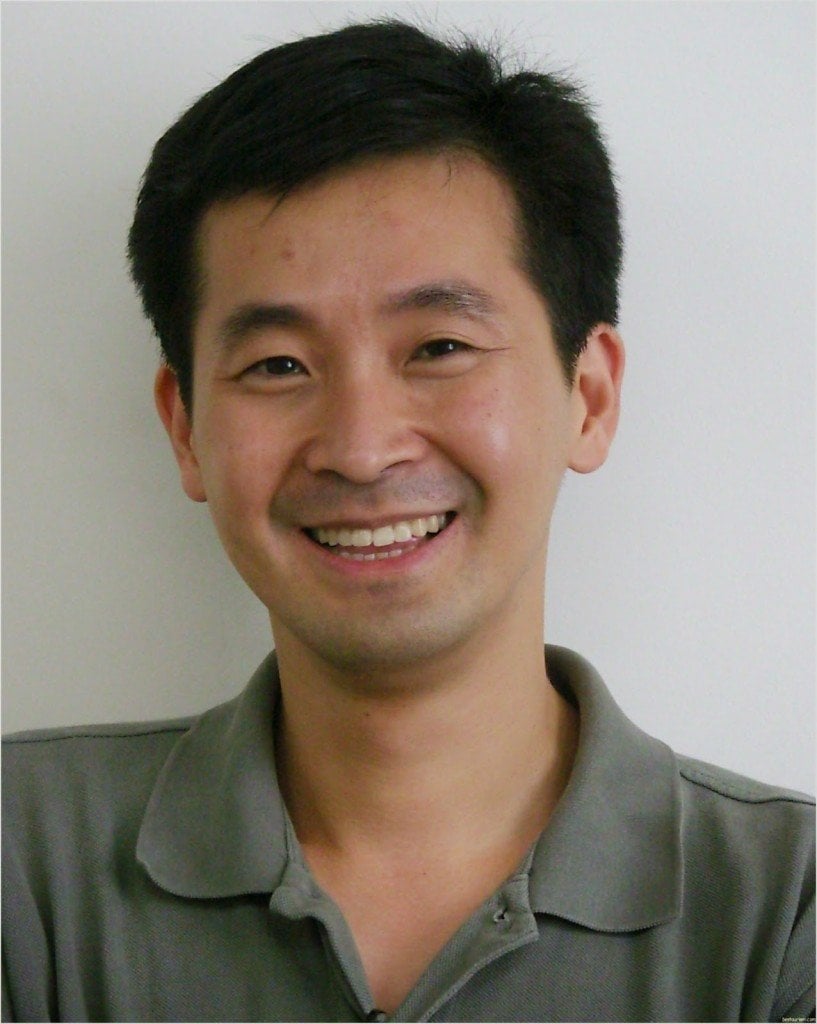
Kim Ung-Yong was born in Seoul, South Korea, on March 8, 1962. His exceptional cognitive abilities became evident at an early age. Remarkably, he began speaking when he was just six months old. By the age of three, he could read English, Korean, Japanese, and German. Even more astonishing, he was writing poetry and had completed two short stories by the tender age of four. In addition to his linguistic talents, he displayed proficiency in advanced mathematics and demonstrated a deep understanding of complex scientific concepts. His parents, recognizing his exceptional intellectual potential, actively supported his early development and education.
By the time Kim was five, he made appearances on Japanese television, including Fuji Television, where he astounded audiences by solving differential equations. On subsequent appearances, he tackled intricate problems in differential and integral calculus, further cementing his reputation as a prodigy.
Kim briefly attended the University of Colorado, but his family believed the educational facilities were insufficient for his exceptional abilities. Consequently, he returned to South Korea and received homeschooling. Ultimately, he earned his Ph.D. in Civil Engineering from Chungbuk National University.
In later years, Kim Ung-Yong chose to lead a more private life, staying away from the public eye and refraining from seeking additional fame or attention for his intellectual prowess. He currently serves as a faculty member at Shinhan University.
K. visalini (IQ Score: 225)
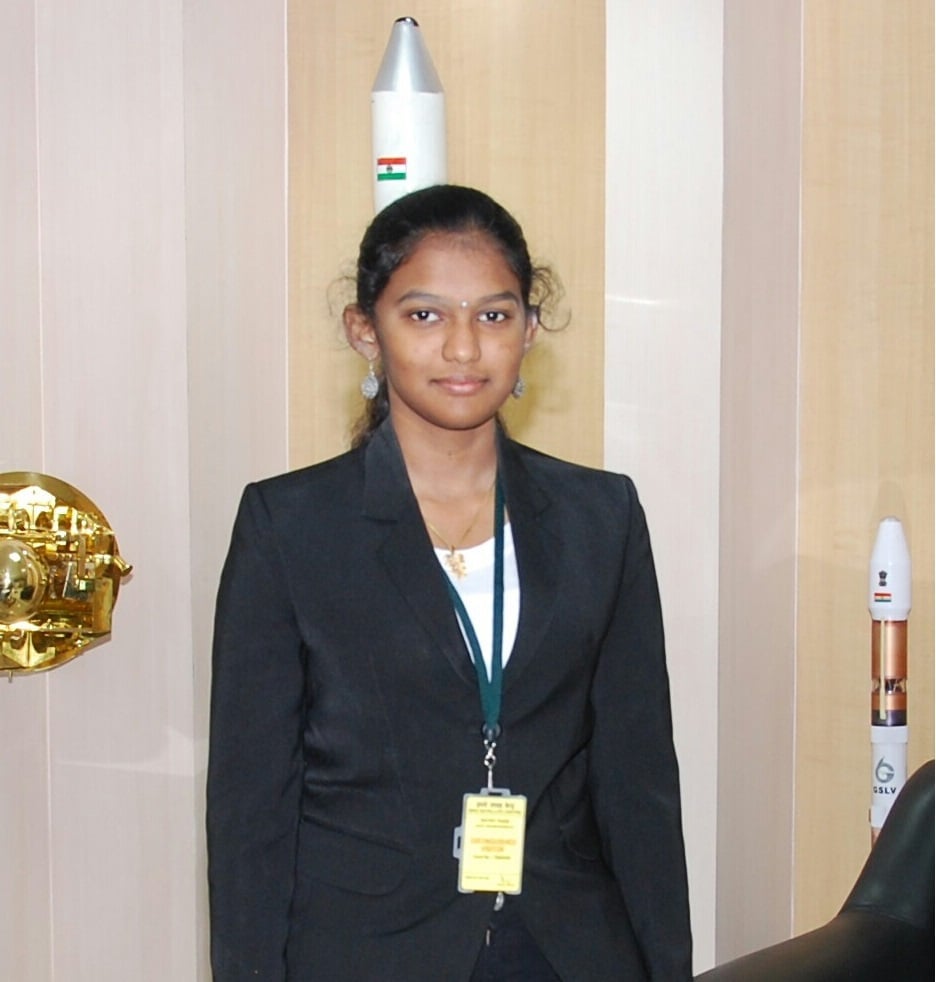
K. Visalini, hailing from Tirunelveli, Tamil Nadu, India, is renowned as an Indian prodigy who made history by becoming the youngest Microsoft Certified Professional (MCP) in the world at the remarkable age of 10, born in the year 2000. Her journey in the world of science and technology began early in her life, showcasing an exceptional aptitude for these fields.
Visalini’s list of achievements is quite impressive. In addition to her record-setting MCP accomplishment, she boasts four other world records as a Microsoft Certified Technology Specialist, a Certified Information Systems Security Professional, a Certified Ethical Hacker, and a certified Linux professional. Remarkably, she completed her high school education at just 9 years old, and by the age of 14, she had acquired numerous diplomas in computer-related disciplines. Notably, she obtained the Cisco Certified Network Associate (CCNA) certification at the age of 11.
In 2015, Visalini embarked on her academic journey at Kalasalingam University, where she pursued a bachelor’s degree in Computer Science Engineering. Her admission to the university marked a historic milestone, as she was the youngest student ever admitted. She graduated with distinction, achieving an impressive GPA of 9.6 out of 10. Her thirst for knowledge led her to further academic pursuits, culminating in the completion of an MTech and a PhD in Artificial Intelligence from the same institution.
Despite her youth, Visalini has delivered lectures at prestigious institutions such as ISRO (Indian Space Research Organization), esteemed universities including IIT-Madras and IIIT-Hyderabad, and participated as a speaker at global events hosted by renowned companies like IBM and Microsoft. Furthermore, her involvement in research has spanned various areas, including Artificial Intelligence, Cognitive Neuroscience, Neurophysiology, Non-Invasive Brain Stimulation, Brain Computer Interface, Exoskeleton, Computer Vision, Signal Processing, and Autonomous Navigation.
Today, Visalini has ventured into entrepreneurship and operates a company named Vika Innovations. At Vika Innovations, she harnesses the power of AI technology to develop innovative solutions for complex real-world challenges.
Despite her numerous accomplishments, Visalini’s thirst for knowledge remains unquenchable, as she continues to pursue advanced degrees. Her enduring commitment to education and her remarkable achievements serve as a source of inspiration to aspiring young individuals in STEM fields.
Christopher Hirata (IQ Score: 225)
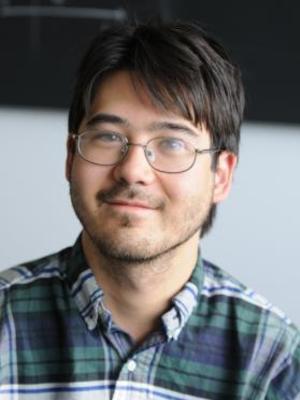
Christopher Hirata, a distinguished astrophysicist and cosmologist, was born in Ypsilanti, Michigan, in 1982. Although he has Japanese heritage, he spent his formative years in the United States. Hirata is widely acclaimed for his remarkable intellect and numerous groundbreaking academic accomplishments.
Professionally, Hirata’s career revolves around academia and astrophysics. His work delves into the intricate study of the universe and the various physical phenomena that occur within it, with a primary focus on cosmology. His interests span from investigating the early Universe, encompassing concepts like inflation and the cosmic microwave background, to exploring the late Universe, including large-scale structure and the enigmatic dark energy.
Astonishingly, at the tender age of 13, Hirata became the youngest American (and the second youngest participant overall) to secure a gold medal at the prestigious International Physics Olympiad held in Norway in 1996. This early success paved the way for his academic journey. He embarked on his undergraduate studies in physics at the California Institute of Technology (Caltech) at the incredibly young age of 14, successfully completing his coursework.
In 2005, after obtaining his Ph.D. in Astrophysical Sciences from Princeton University, Hirata commenced his professional career as a professor at Caltech. Subsequently, he relocated to Ohio State University, where he became involved in designing NASA’s next-generation telescopes, including the proposed Nancy Grace Roman Space Telescope.
Throughout his career, Hirata has held Research Council Fellow positions and delivered lectures at prestigious institutions such as the University of Chicago and Cambridge University. Presently, he serves as a professor of Physics and Astronomy at Ohio State University.
Hirata’s substantial contributions to the fields of astrophysics and cosmology have not gone unnoticed. He received the 2014 Helen B. Warner Prize from the American Astronomical Society in recognition of his exceptional contributions to observational and theoretical astronomy. In 2018, he was awarded the Breakthrough Prize in Fundamental Physics, solidifying his status as one of the foremost prodigies of our time in the realm of astrophysics and cosmology.
Marilyn Vos Savant (IQ Score: 228)
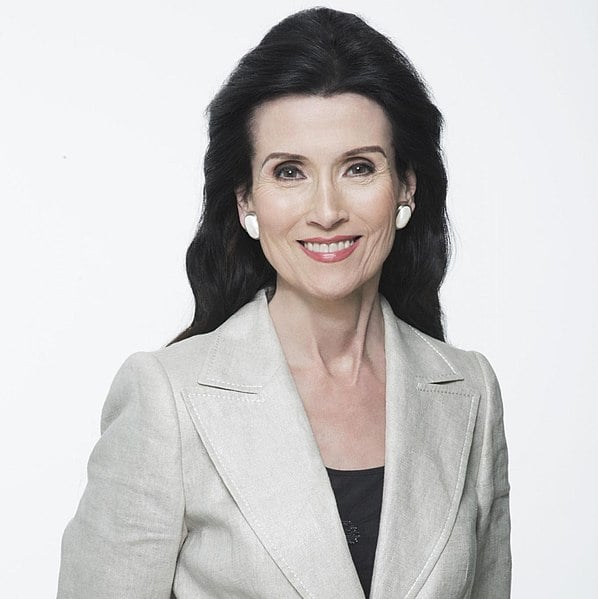
Marilyn vos Savant, born on August 11, 1946, in St. Louis, Missouri, USA, came from an education-focused family that nurtured her intelligence from an early age. Her remarkable intellect came to public attention when a psychologist from Washington University in St. Louis conducted an IQ test that revealed an exceptionally high score, garnering national media coverage. In 1986, she gained widespread fame when she entered the Guinness World Record category for the “Highest IQ,” with her IQ recorded at 228, a record she held until 1989.
However, a psychology professor and author of IQ tests called, Alan Kaufman, questioned this, claiming that:
Miss Savant was given an old version of the Stanford-Binet (Terman & Merrill 1937), which did, indeed, use the antiquated formula of MA/CA × 100. But in the test manual’s norms, the Binet does not permit IQs to rise above 170 at any age. So, the psychologist who came up with an IQ of 228 committed an extrapolation of a misconception, thereby violating almost every rule imaginable concerning the meaning of IQs.
Vos Savant has enjoyed a diverse career encompassing various fields, including writing, media, and business consulting. Initially involved in the family investment business, she later transitioned to a writing career. Notably, she authored a column called “Ask Marilyn” in Parade magazine, where she harnessed her intelligence and analytical abilities to provide answers to a wide array of reader-submitted questions, covering topics that ranged from logical and mathematical puzzles to general inquiries. She earned recognition for her solution to the Monty Hall problem, a puzzle that sparked extensive debate among mathematicians.
Terence Tao (IQ Score: 225-230)
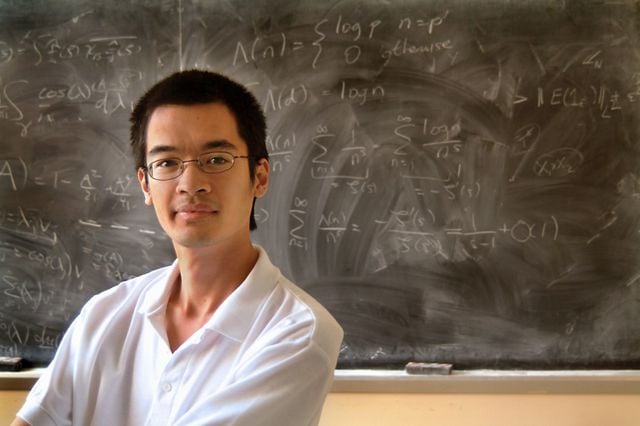
Terence Tao, born on July 17, 1975, in Adelaide, South Australia, hails from a family with strong mathematical influences. His mother, a mathematician and educator, and his father, an MBBS doctor, nurtured his early passion for mathematics. Tao’s exceptional mathematical talents were evident from a young age, and he gained recognition as a child prodigy. At just 13, he achieved the remarkable feat of winning a gold medal at the International Mathematical Olympiad, establishing himself as one of the competition’s youngest-ever champions.
Tao’s pursuit of higher education in mathematics led him to Flinders University in Adelaide, where he obtained his bachelor’s degree in 1991 and his master’s degree the following year, astonishingly at the age of 16. At 17, he embarked on a journey to the United States to begin his doctoral studies at Princeton University under the guidance of Elias Stein, a distinguished mathematician renowned for his work in harmonic analysis.
Today, Tao is a professor at the University of California, Los Angeles (UCLA), where his research spans a wide range of mathematical disciplines, including harmonic analysis, partial differential equations, algebraic combinatorics, arithmetic combinatorics, geometric combinatorics, probability theory, compressed sensing, and analytic number theory.
His exceptional contributions to the field have earned him numerous prestigious awards, including the Fields Medal in 2006, often likened to the Nobel Prize in mathematics. He was recognized for his groundbreaking work in partial differential equations, combinatorics, and harmonic analysis. Tao is also the co-author of two books, “Additive Combinatorics” (2006) and “Solving Mathematical Problems: A Personal Perspective” (2006).
In 2012, he was appointed a Simons Investigator, and in 2014, he received the Breakthrough of the Year award for his pioneering work in “compressed sensing,” a signal processing technique. His outstanding contributions to mathematics led to his election to the Royal Society in 2007 and the National Academy of Sciences (USA) in 2008, signifying significant recognition within the mathematical community.
Additionally, Tao runs a highly regarded mathematics blog where he engages with a diverse range of mathematical topics, promoting open collaboration and learning among his readers. His dedication to facilitating online collaboration has established him as an innovative and influential educator in the field of mathematics.
William James Sidis (IQ Score: 250-300… Probably)
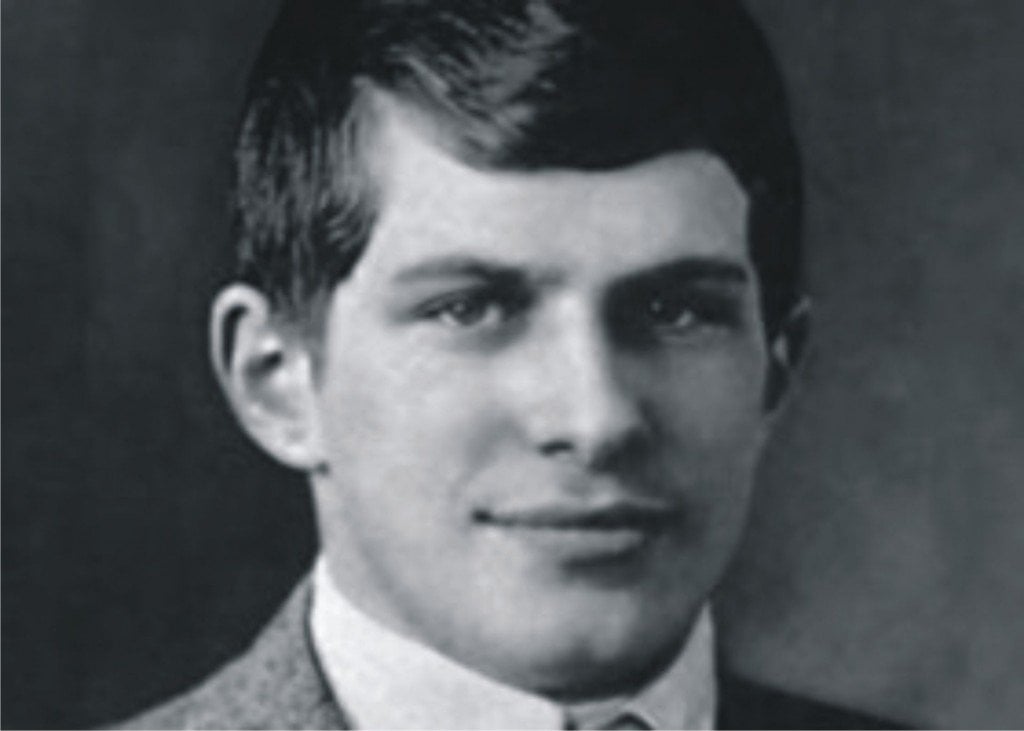
This man simply plays in a completely different league. Born in 1898 in New York City and raised in an intellectual family, he was gifted from the very beginning. At age 5, he operated a typewriter and learned Latin, Greek, Russian, French, German, and Hebrew. At age 6, he was refused admission to Harvard because he was considered too emotionally immature.
Later, at the age of 11, they had to take him in, and he gave his much-acclaimed first lecture on 4-dimensional physics! Some fellow students threatened him at Harvard, so his parents put him in a teaching position in Texas. Due to this, he could not pursue academics and instead decided to focus on his political career. He died of a stroke at 46 as a reclusive, penniless clerk.
It should be noted that the fact that he was the smartest man of all time is often called into question because William’s sister and mother had acquired a reputation for making exaggerated claims about the Sidis family. His sister told a famous psychologist and author Abraham Sperling that his brother had an IQ score of 250 +.
To quote Sperling, author of the 1946 book Psychology for the Millions:
Helena Sidis William’s sister told me that a few years before his death, her brother Bill took an intelligence test with a psychologist whose score was the highest ever. Regarding IQ, the psychologist said that the number would be between 250 and 300. William Sidis took general intelligence tests late in life for civil servants in New York and Boston. His phenomenal ratings are a matter of records.
However, Sperling never seems to have given Sidis an IQ test himself to test his IQ. If so, why didn’t he talk about it in A Story of Genius, which is basically Sterling’s account of Sidis’s intellectual abilities?
Apart from the controversy over Sidis “real IQ, he was undoubtedly a brilliant individual, a fact evidenced by the excellence he achieved so early in his life. It is impossible to say what Sidis would have achieved in mathematics and science if his talents had not been wasted.
Ainan Celeste Cawley (IQ Score: 250)

Ainan Celeste Cawley, a child prodigy hailing from Singapore, gained global recognition for accomplishing the remarkable feat of passing the Chemistry O-level exam at the incredibly young age of 7, setting a world record. Born on November 23, 1999, to a Singaporean mother and an Irish father, Ainan exhibited signs of exceptional intelligence from an early age. He astounded his family by taking his first steps at a mere six months old and speaking his first words at just 9 months. Ainan’s early intellectual development was equally remarkable, as he began reading and writing at the astonishing age of 2.
His remarkable journey into the world of knowledge continued to unfold. At the age of 6, he confidently delivered his first public lecture. By the age of 9, Ainan had memorized the value of pi to 521 decimal places and could effortlessly recite the periodic table of elements.
Ainan’s educational path took a unique turn when, at the age of 8, he gained admission to Singapore Polytechnic to study Chemistry, becoming the youngest student ever accepted into any of Singapore’s polytechnics. His thirst for knowledge remained unquenchable, and at 9 years old, he presented a public lecture titled “Acids and Alkalis in Everyday Life,” which attracted an audience of 500 people. By the time he reached 9.5 years of age, he was studying materials typically covered in the third year of a chemistry program.
Remarkably, Ainan pursued much of his education through self-study, with guidance from his father, Valentine Cawley, who himself was a gifted individual. His father, having obtained a degree in physics at a remarkably young age, had also pursued an acting career. Learning from home provided Ainan the freedom to explore his interests at his own pace and choose what he wanted to learn.
In addition to his academic achievements, Ainan’s talents extended to the realms of creativity. He composed music and delved into writing, producing plays, scripts, and poetry. By the age of 12, he had scored a film, which premiered at the Vilnius International Film Festival, and eventually, he took on the role of a director, further expanding his creative horizons.
Marnen Laibow-Koser (IQ Score: 268)
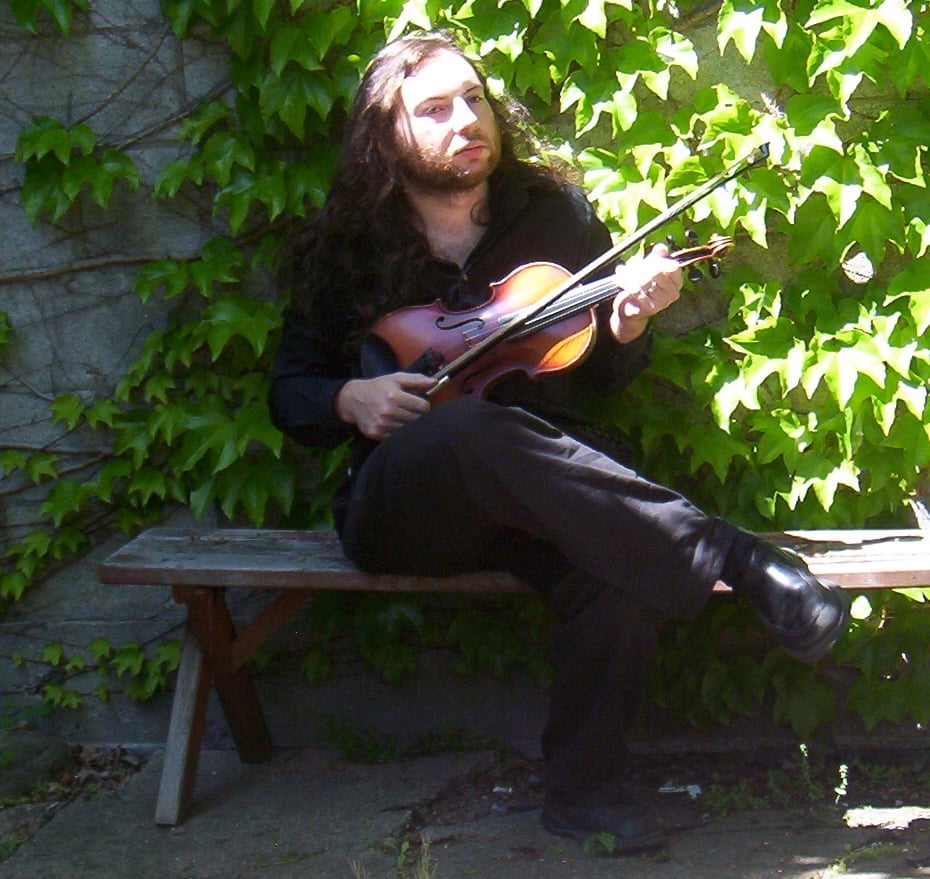
Marnen Laibow-Koser is an exceptionally talented American musician often described as a prodigy, boasting an impressive reported IQ score of 268. He achieved a Master of Music degree through the Contemporary Improvisation program at the New England Conservatory in Boston, Massachusetts. Marnen’s musical journey commenced at a remarkably young age, with his first foray into music at just 3 years old. His musical prowess extends to multiple instruments, including the violin, piano, and guitar.
Beyond his passion for music, Marnen also harbors a deep interest in computer science. He has accrued professional experience in various fields such as web design, development, network support, and animation.
Marnen leads a multifaceted career as a freelance music composer and web developer. He manages an endeavor known as Thunderbird Productions, serving as the platform for his freelance work and creative projects.
Adragon De Mello (IQ Score: 400)

Adragon De Mello, an American who gained fame in the late 20th century, captured attention due to his extraordinary intelligence during his youth. He was born on April 18, 1976, in California, USA, and displayed prodigious talent from an early age. His father, Agustin De Mello, played a pivotal role in shaping his education, with aspirations for his son to achieve the distinction of becoming the youngest person to earn a doctorate degree.
While De Mello didn’t ultimately attain that specific goal, he did achieve significant academic milestones at a remarkably young age, earning widespread recognition. At the age of 8, he began his studies at Cabrillo College, a community college in Aptos, California. In 1988, at the remarkable age of 11, he made history by becoming the first person in American history to earn a college degree at such a young age, majoring in computational mathematics. This remarkable accomplishment garnered significant media attention and even secured him a place in the Guinness World Records book.
However, despite his early academic feats, De Mello’s life took a different course in his teenage years and adulthood. While he was accepted into a graduate program at the Florida Institute of Technology, he chose not to enroll. The intense academic pressure, driven by his father’s ambitions, caused considerable strain within the family. Consequently, De Mello decided to lead a more conventional life, away from the spotlight and expectations.
As an adult, he distanced himself from the early fame that had surrounded him and lived a private life out of the public eye. Today, De Mello is recognized for possessing one of the highest IQ scores ever recorded in human history—an extraordinary IQ score of 400.
So this was the list of people with the highest IQ scores.
Now, let’s take a quick look at what intelligence is and why your IQ score is just one aspect of your overall intelligence.
What Is Intelligence?
Intelligence is the ability of the human mind to gather and appropriately use information. Still, there is no consensus within the scientific community regarding what kind of information this represents. Some theorists believe that all specific abilities are based on intelligence, while others believe multiple intelligences exist.
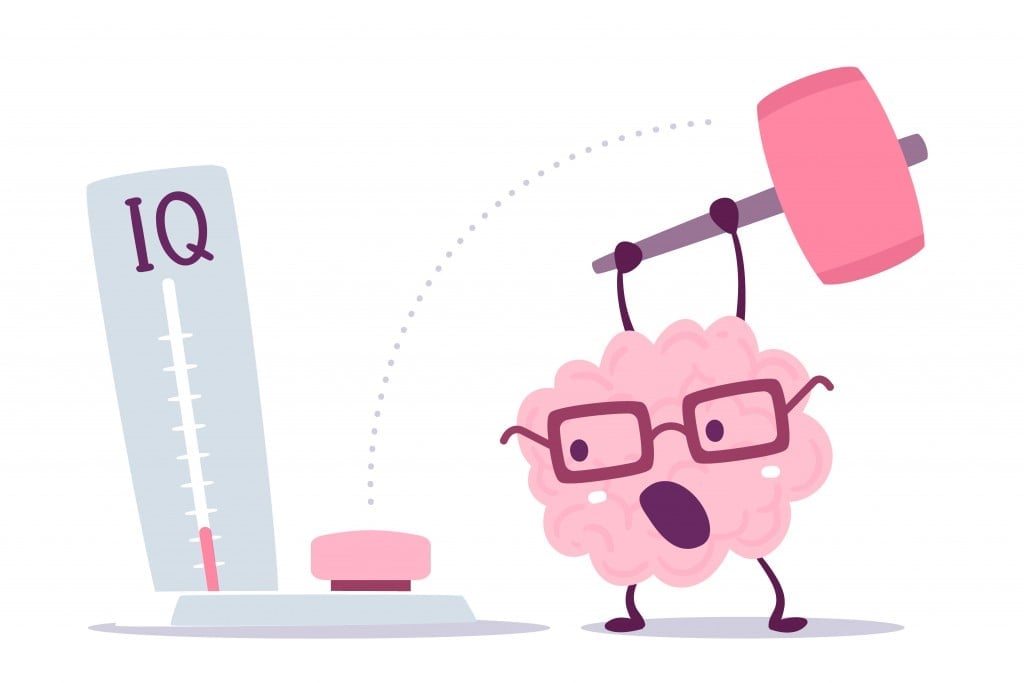
Charles Spearman, one of the early pioneers in the study of intelligence, said that general intelligence represented a person’s overall ability. This postulate was definitely supported by research, but there were many loopholes and nuances. Louis Thurstone openly opposed Spearman and suggested that intelligence differed for each ability.
Thus, for example, one could not predict a person’s mathematical ability based on his speaking ability.
Howard Garner said that there are eight different bits of intelligence:
- linguistic
- logical-mathematical
- interpersonal
- intrapersonal
- special
- musical
- kinesthetic
- naturalistic
He based his idea on people with autism who had severe social deficits but displayed a high or even virtuosic ability in a particular domain (remember Forrest Gump?).

Other theorists, such as Sternberg, were more general in their outlook, suggesting that intelligence should be divided into three main areas – creative, analytical, and practical.
Although these theories were used to improve school performance or measure students “abilities, the world needed a single number and standardized measure to represent intelligence.
How Is Intelligence Tested?
The first-ever intelligence test was developed by Francis Dalton, a cousin of Charles Darwin. He based his test on trying to determine whether differences in intelligence are due to the environment or whether they are due to one’s genes.
However, this test had several disadvantages, and the test areas did not correlate with each other.
Much later, Alfred Binet and Theodore Simon were commissioned to design a test for identifying “mentally subnormal” children in French schools, which was a ground-breaking development in the field of intelligence tests and remains the basis for it to this day.
Mental age is the functioning age of a child or a person. That is, if a seven-year-old could only pass all the things that a five-year-old child could pass, then his mental age would be considered five years, while his chronological age would be seven years; you will see later why this is important.
Standardization
The next innovation was the concept of standardization: the final IQ score would be calculated by comparing one’s performance with others of their age rather than a general number.
Binet’s concept of mental age was a pivotal moment in innovation, paving the way for determining a person’s intelligence quotient. William Stern told us that there was no point in determining a child’s mental age only if there was nothing to compare it to. Therefore, Stern compared a child’s mental age with his chronological age to guess his intelligence.
So if a ten-year-old child had an intellectual age of eight years, it was below average; if his intellectual age was ten years, it was average; and if his intellectual age was above ten years, it was considered above average.
Lewis Terman finally called this an “intelligence quotient” and presented the concept of IQ to the world. He revised the concept slightly and made the IQ a percentage.
The final formula to calculate IQ is MA/CA*100, where MA is mental age and CA is chronological age.
This approach works until an individual reaches 17 or 18, but beyond that, it gives a rather skewed perspective. A more statistical approach was then adopted, where scores were converted into set scores to determine the final IQ score.
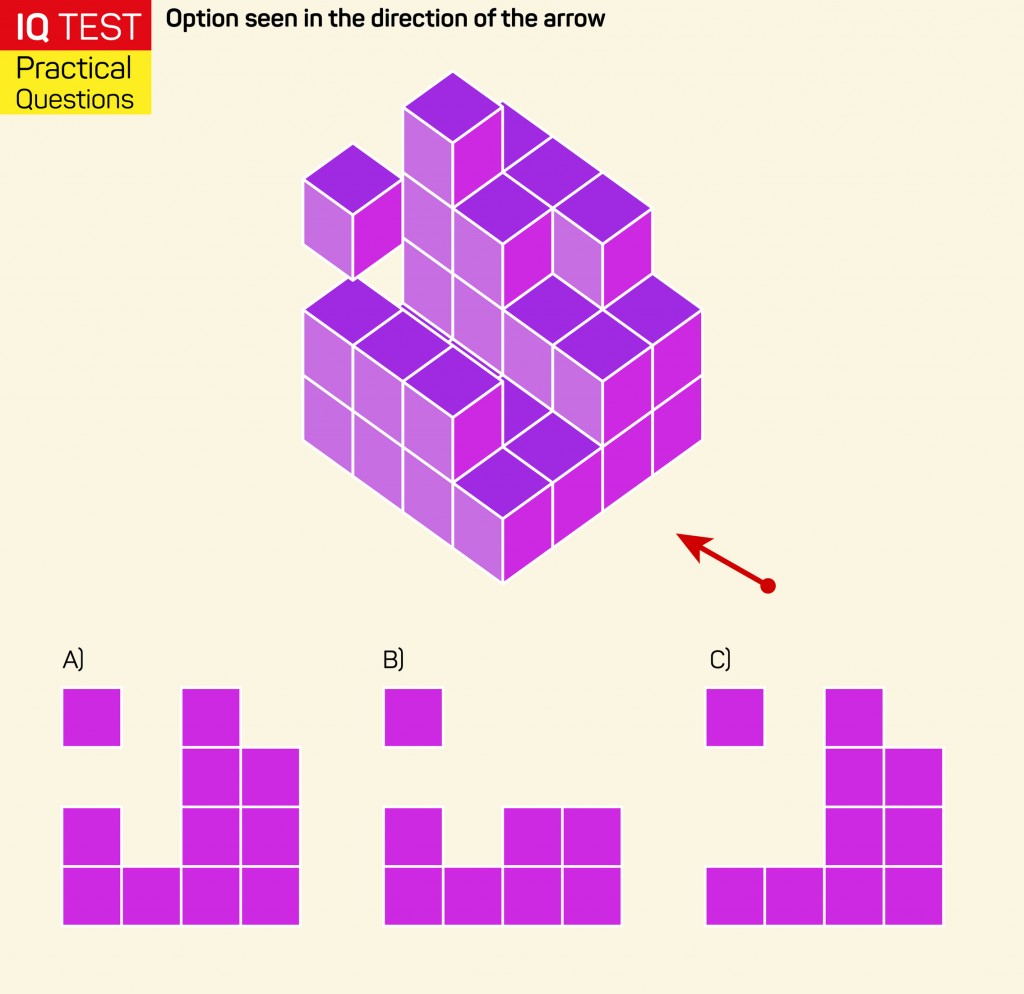
Currently, the Wechsler Scales, the Binet Kamet Test of Intelligence, MISIC, Raven’s Progressive Matrices, etc., are used to assess IQ. The questions on these scales are different for children and adults. These tests are composed of various subtests. For example, Wechsler’s consists of Information, Digit Span, Vocabulary, Arithmetic, Comprehension, Similarities, Picture Completion, Picture Design, Object Assembly, and Digit Symbol sub-tests.
What Is Considered A High IQ?
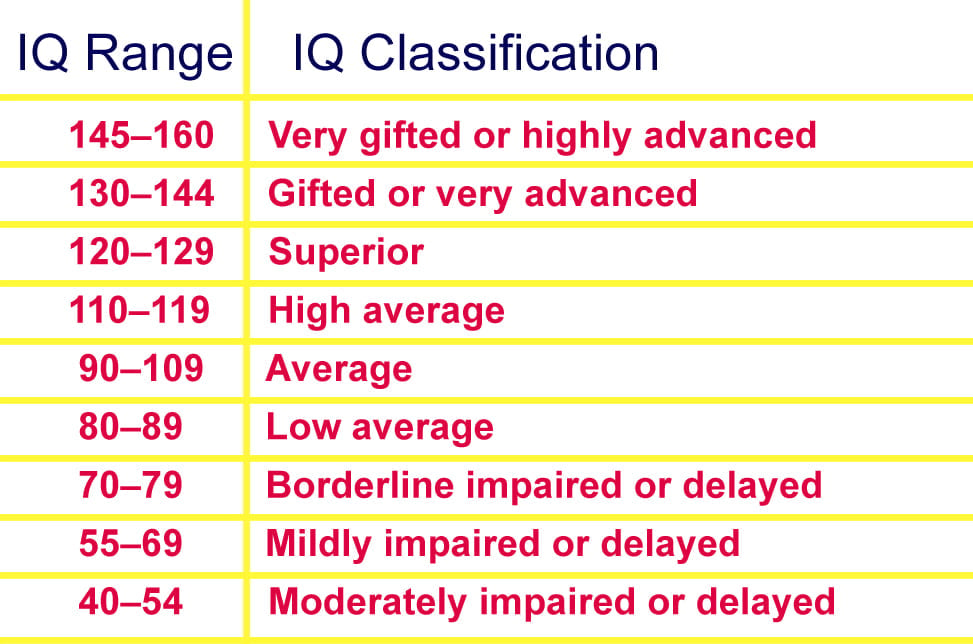
If a person scores 130 or more points on an IQ test, they are said to have a high IQ; indeed, they are called “gifted.” A gifted person can exhibit various characteristics, such as exceptionally brilliant memory and vigilance, is deeply intuitive, can solve problems beyond his age, or has an enormous vocabulary. These characteristics vary from one individual to another.
It often happens that a student who is a daydreamer in class may be gifted but is in a class that is not challenging enough to raise his curiosity or engage him effectively.
The Flynn Effect
The Flynn Effect refers to the continuous year-on-year rise of IQ scores in population samples across the world. The term was coined by Richard Herrnstein and Charles Murray in “The Bell Curve”, named after psychologist James R. Flynn, who conducted extensive research on this pattern which was first noticed in the 1930s. Flynn’s studies concluded that IQ scores rose significantly from one generation to the next for the majority of the 20th century, approximately three points per decade.
The cause of the Flynn Effect has been widely debated among scientists and scholars. Some attribute it to improved nutrition, better education, reduced exposure to toxins, greater cognitive stimulation from technology, and changes in parenting style and social environment. However, no single explanation has been definitively proven to account for the entire effect.
Intriguingly, in recent years, some evidence has suggested a potential reversal or slowing down of the Flynn Effect in a handful of developed countries. This has led to numerous studies trying to understand this shift, adding another layer of mystery to this well-documented yet incompletely understood phenomenon in intelligence research. Despite the uncertainties about its cause and future trend, the Flynn Effect remains an important concept in psychology, with profound implications for education policies, social inequalities, and our understanding of human intelligence’s malleability.
Does ‘High IQ’ Mean Academic Or Professional Success?
A high IQ is not an indicator of academic success or professional success. In fact, Richard Loeb and Nathan Leopold had IQ scores of 169 and 210; Jeffry Dahmer and Ted Bundy had IQ scores of 145 and 136, respectively. If you wonder who these people are, they are some of the most ruthless serial killers in the world. Loeb and Leopold believed that their “intellectual superiority” helped them carry out their murders easily.
Researcher Stephen Gourd believed that general Intelligence is a mathematical artifact rather than anything else. Intelligence is undoubtedly important, but rational thinking skills such as judgment and decision-making are equally important, and intelligence values do not encompass any of these areas.
If intelligence tests are not fully valid, how can intelligence best be determined?
The “emotional quotient,” a person’s ability to understand one’s own emotions and those of others, has recently been gaining attention in the psychological community. It can predict one’s work performance, leadership skills, and mental health.
References (click to expand)
- Sternberg R. (2005). Cognitive Psychology. Cengage Learning
- Andrew M Colman | People | University of Leicester. le.ac.uk
- Sternberg, R. J. (2008, May 13). Increasing fluid intelligence is possible after all. Proceedings of the National Academy of Sciences. Proceedings of the National Academy of Sciences.
- Stephen Hawking - Wikipedia
- Marnen Laibow-Koser - Geniuses.Club. geniuses.club
- WHAT IS WILLIAM JAMES SIDIS IQ SCORE? 5 THINGS YOU .... iq-test.net
- Meet William James Sidis: The Smartest Guy Ever? - NPR. National Public Radio
- Ainan Celeste Cawley - Geniuses.Club. geniuses.club
- Marilyn vos Savant | Encyclopedia.com. Encyclopedia.com
- Terence Tao: Meet the person with the highest IQ in the world. gentside.co.uk
- Albert Einstein - Wikipedia
- Eleven-year-old Indian girl rated with highest IQ in the world. theweekendleader.com
- Celebrity IQ Scores - arealme.com. arealme.com
- The Inspiring Life Of A South Korean Professor Who Was .... koreaboo.com
- Kim Ung-yong - Wikipedia. Wikipedia

